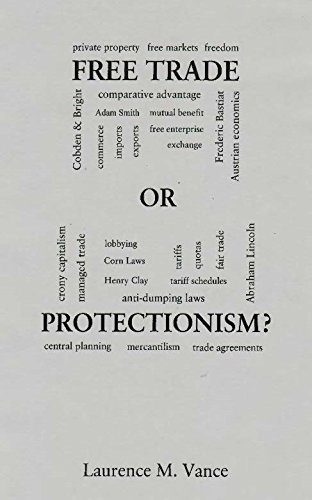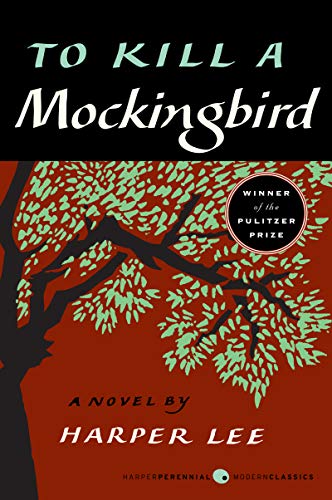Another Banned Books Week has come and gone.
Organized by the American Library Association’s Office for Intellectual Freedom (OIF), Banned Books Week was September 23-29. The event began in 1982 after “banned books were showcased at the 1982 American Booksellers Association (ABA) BookExpo America trade show in Anaheim, California.” Attendees to the convention were greeted with “large, padlocked metal cages” near the entrance “with some 500 challenged books stacked inside and a large overhead sign cautioning that some people considered these books dangerous.” The initiative took off after “major news outlets such as PBS and the New York Times covered the event, and mayors and governors issued proclamations affirming the week.”
This year’s theme for Banned Books Week was “Words Have Power, to celebrate the power of readers to stand up to censorship and the power of banned books to create literary communities.”
 The Free Society
Best Price: $13.55
Buy New $17.54
(as of 04:55 UTC - Details)
We know what books have been banned because every year, the OIF “compiles a list of the Top Ten Most Challenged Books in order to inform the public about censorship in libraries and schools.” The lists “are based on information from media stories and voluntary challenge reports sent to OIF from communities across the United States.”
The Free Society
Best Price: $13.55
Buy New $17.54
(as of 04:55 UTC - Details)
We know what books have been banned because every year, the OIF “compiles a list of the Top Ten Most Challenged Books in order to inform the public about censorship in libraries and schools.” The lists “are based on information from media stories and voluntary challenge reports sent to OIF from communities across the United States.”
Of the 416 books challenged or banned in 2017, the Top 10 Most Challenged Books were:
- Thirteen Reasons Why
- The Absolutely True Diary of a Part-Time Indian
- Drama
- The Kite Runner
- George
- Sex is a Funny Word
- To Kill a Mockingbird
- The Hate U Give
- And Tango Makes Three
- I Am Jazz
 Free Trade or Protecti...
Buy New $5.95
(as of 04:55 UTC - Details)
These books were banned or challenged because they contained profanity, violence, same-sex relationships, sexual violence, sexually explicit situations, LGBT characters, vulgarities, offensive language, drug use, sex education, and/or references to suicide. The Pulitzer Prize-winning novel, To Kill a Mockingbird by Harper Lee, “was challenged and banned because of violence and its use of the N-word.”
Free Trade or Protecti...
Buy New $5.95
(as of 04:55 UTC - Details)
These books were banned or challenged because they contained profanity, violence, same-sex relationships, sexual violence, sexually explicit situations, LGBT characters, vulgarities, offensive language, drug use, sex education, and/or references to suicide. The Pulitzer Prize-winning novel, To Kill a Mockingbird by Harper Lee, “was challenged and banned because of violence and its use of the N-word.”
Where are these books being challenged? No one who has ever visited my library has ever challenged or petitioned the government to ban any of my books. They are being challenged and banned because people saw them in public libraries and public school libraries.
I have read the descriptions of these books. Aside from the American Classic To Kill a Mockingbird, which was originally published in 1960, the other books all look like trash that I would never have let my kids read when they were in school.
But rather than joining in the challenges to and rejoicing in the banning of these and other pieces of literary garbage, I am proposing a more radical solution. I challenge the existence of public libraries and propose that the government ban public schools.
I have written previously about both public libraries and public schools so I will be brief: neither one should exist.
 To Kill a Mockingbird
Best Price: $1.97
Buy New $6.00
(as of 04:45 UTC - Details)
To Kill a Mockingbird
Best Price: $1.97
Buy New $6.00
(as of 04:45 UTC - Details)
It is not the purpose of government to provide services that could and should be provided by the free market. Government has no business operating public libraries and public schools anymore than it has any business providing or paying for health care, generating electricity, collecting garbage, running liquor stores, operating buses, feeding the hungry, inspecting restaurants, issuing dietary requirements, building sports stadiums, mandating CAFE standards, funding medical research, or sending men to the moon.
In a free society, all libraries and schools would be private. Private libraries and private school libraries would be free to ban any books from their shelves whether the books are challenged or not—just like bookstores do now. And just like homeowners already ban certain books from their home, dentists ban certain magazines from their waiting rooms, and businesses ban certain books from the workplace. Visitors to homes, clients of dentists, or patrons of businesses who object to books they find can protest or leave, but ultimately it is the property owner who decides what books will be permitted on the premises.
As long as there are public libraries and public schools, books will continue to be challenged and banned. The solution is to move to a private property society.






